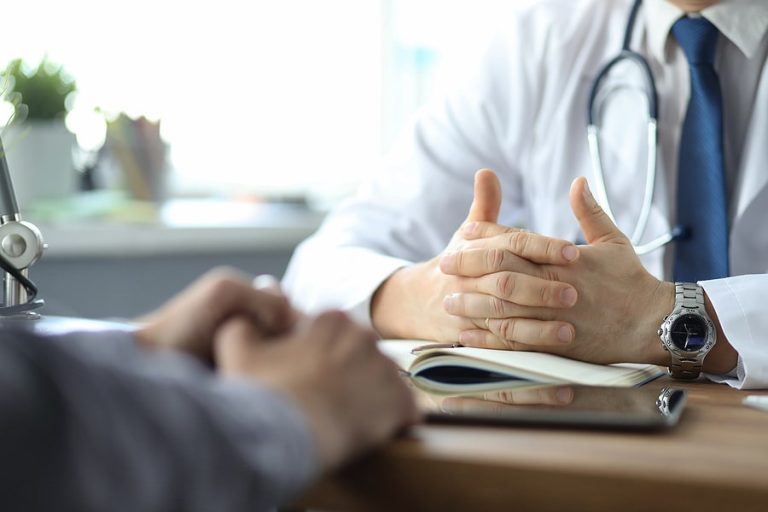 It was once touted as a new option for those who are obese, overweight, or suffering from weight-related medical conditions. However, many people that were prescribed Belviq or Belviq XR to help them lose weight in a long-term clinical trial reported feeling unwell years into the study. In fact, many users reported that the drug made them feel like they had cancer. Sadly, they did.
It was once touted as a new option for those who are obese, overweight, or suffering from weight-related medical conditions. However, many people that were prescribed Belviq or Belviq XR to help them lose weight in a long-term clinical trial reported feeling unwell years into the study. In fact, many users reported that the drug made them feel like they had cancer. Sadly, they did.
In February 2020, the maker of Beviq and Belviq XR—Japanese drug manufacturer Eisai—announced that it was voluntarily pulling the drug from the market upon the request of the Food and Drug Administration (FDA). The FDA not only felt that the risks of this drug were severe enough to request an immediate withdrawal from the market, but also to state that individuals taking the medication should stop doing so immediately. If you were prescribed this medication, and you have been diagnosed with cancer, an experienced Belviq injury attorney can help you understand your legal options.
What Is Belviq?
Belviq, with the active ingredient lorcaserin, is a weight loss drug that was prescribed to obese or overweight individuals with at least one weight-related medical condition. Lorcaserin belongs to a class of drugs called serotonin receptor agonists, which produce an increased feeling of fullness that causes users of the drug to consume less food.
The drug was said to not only help those individuals lose weight, but also to help prevent them prevent gaining it back. The medication was provided in tablet form or extended-release tablet to be taken by mouth, with or without food, twice a day, as part of a larger weight loss plan that also included exercise and a reduced-calorie diet.
In addition to an increased risk of certain types of cancer, Belviq has a long list of other known side effects, including:
- Agitation or anxiety
- Confusion or difficulty paying attention or remembering information
- Swelling of the hands, arms, feet, or legs
- Hallucinations about things that don’t exist, or a feeling of being outside of one’s own body
- Depression or thoughts of suicide or self-harm
- Difficulty with coordinated movements
- Sweating or fever
- Nausea
- Constipation
- Dry mouth
- Excessive tiredness
- An erection that lasts more than four hours
- Breast enlargement in males, or discharge from the breasts in males or females
- Headache
- Dizziness
- Muscle spasms, stiffness, twitching, or pain in muscles or in the back
- Insomnia
- Difficult or painful urination
- Cough
- Blurred vision or other vision changes
- Dry eyes
- Toothache
Being overweight means weighing more than what is considered a healthy weight for one’s height, body frame, and age. Obesity means having too much body fat. Of the two, obesity is considered more dangerous, as it can lead to dangerous medical conditions, such as diabetes, heart disease, stroke, arthritis, and some cancers. Losing bodyweight—even as little as 10 to 20 pounds—can delay many of these conditions.
As with most medications, patients and their physicians are asked to compare the benefits to one’s overall health of taking a drug as opposed to the risks of additional medical issues that are posed by the drug. Eisai noted in its announcement of the withdrawal of Belviq from the U.S. market that the drug has been evaluated in more than 30 clinical trials over 15 years, involving more than 22,000 patients, and that the company still believes that the drug has a positive risk-benefit profile for patients.
Growing Concern From the FDA
According to the U.S. Food and Drug Administration (FDA), when Belviq was approved for use in the U.S. in 2012, the manufacturer was required to conduct a randomized, double-blind, placebo-controlled clinical trial to evaluate the risk of heart-related problems. The study involved monitoring around 12,000 patients over five years. When evaluating the results of the study, the FDA discovered that more patients who were taking the drug were diagnosed with cancer than those who were taking a placebo. Eisai reported that the results of that evaluation were that 7.7 percent of patients taking Belviq were diagnosed with cancer, in comparison to 7.1 percent of the placebo group.
The types of cancers that Belviq is suspected of increasing the risk of include:
- Lung cancer: This type of cancer is a leading cause of death in both men and women in the United States. It is often associated with smoking, but even individuals who have never smoked can suffer from lung cancer. It presents with symptoms such as a cough that doesn’t go away, coughing up blood, shortness of breath, chest pain, hoarseness, weight loss, bone pain, and headaches.
- Pancreatic cancer: The pancreas is an organ located in the abdomen, behind the lower stomach. It releases enzymes that aid in digestion and produces hormones that help to regulate blood sugar. Pancreatic cancer is seldom detected in its early stages because it usually doesn’t present symptoms until it has spread to other organs. This results in a higher death rate than many other types of cancer. Symptoms, once they appear, often include abdominal pain, jaundice, light-colored stools, dark-colored urine, itchy skin, diabetes, blood clots, and fatigue.
- Colorectal cancer: Also known as bowel cancer, colon cancer, or rectal cancer, this type of cancer is the second leading cause of cancer death in women and the third for men. Symptoms of colorectal cancer include changes in bowel habits, diarrhea or constipation, the feeling that the bowel has not been emptied after a bowel movement, blood in feces that makes stools look black, bright red blood coming from the rectum, a feeling of fullness, pain or bloating in the abdomen, fatigue, unexplained weight loss, a lump in the abdomen that can be felt by the doctor, and unexplained iron deficiency in men as well as in post-menopausal women.
Belviq may increase a user’s risk of other cancers, as well, but the FDA did not specifically identify additional types.
How Does the FDA Choose Which Drugs to Approve?
Why didn’t the FDA know about the increased risk of cancer before it approved this drug for use in the U.S.? What is the approval process for new drugs? These are common questions when there is a drug recall or—as in this case—a voluntary withdrawal of the drug from the market upon recommendations from the FDA.
The drug approval process includes:
- Sponsors, including companies, research institutions, and other organizations, usually take responsibility for developing a new drug. Drugs are put through a series of pre-clinical tests involving animals. Most proposed drugs do not make it past this phase to go on to human testing.
- The sponsor files an Investigational New Drug application with the FDA and presents the results of the drug’s pre-clinical tests as well as a proposal for human testing. The FDA determines, based on the information presented, if it is reasonably safe for the company to continue with human testing.
- Once the FDA has reviewed the application, a local institutional review board will develop protocols for the clinical trial, including who may participate in the trial, a schedule of tests and procedures, potential dosage amounts, the length of the trial, the study’s objectives, and other details.
- Phase 1 studies are generally conducted on healthy volunteer test subjects. The purpose of Phase 1 is to develop a list of side effects, as well as to determine how the drug is metabolized and excreted. These studies usually involve 20 to 80 people.
- Provided Phase 1 studies don’t reveal an unacceptable level of toxicity, the drug moves on to Phase 2. Phase 2 tests the effectiveness of the drug in treating people with a certain medical condition. For the controlled trials in this phase, researchers compare patients who are receiving the drug to patients with a similar condition who are receiving an inactive substance, known as a placebo. Safety is constantly evaluated, along with short-term side effects. Phase 2 studies generally involve 20 to 300 people.
- If the drug makes it past the Phase 2 stage, then it is time for the larger, Phase 3 study. This study often considers the effects of a drug on a group of up to 3,000 people. This phase looks at how the drug works for different populations, using different dosages, and how it interacts with other medications.
- If the FDA deems the results of the Phase 3 study acceptable, the drug is approved for market through the filing and approval of a New Drug Application. With this application, the sponsor must submit all evidence gathered during the trials to prove the safety and effectiveness of the drug. However, even after approval, there are ongoing post-market and commitment studies that the company agrees to undergo so that the administration can continue to study the safety and effectiveness of the product, as well as to determine its optimal use.
The clinical trials involved in the process can take several years to complete. However, after all that time, the FDA states that it will provide an answer to the New Drug Application within 60 days of its submission.
Legal Responsibility for Dangerous Drugs
Manufacturers and distributors of prescription drugs have the responsibility to ensure that their drugs are safe when used as instructed. Failure to do so can make them liable for the injuries or illnesses that individuals using the drug suffer.
Injuries and illnesses caused by prescription drugs generally occur in one of two ways:
- Manufacturing defects: Manufacturing defects can occur during the factory production of the drug or during the compounding process at the pharmacy. Defects are the result of drugs that are improperly manufactured or become tainted during or after the manufacturing process.
- Unreasonably dangerous side effects that the company did not warn about: This is the case with Belviq, as an increased risk of certain types of cancer were not one of the listed potential side effects of the drug, in spite of detected increases in the number of patients diagnosed with cancer after taking the drug when compared to those in clinical trials who were taking a placebo.
One reason that the FDA requires so many trials before approving a drug for use is so that it can review the side effects suffered by individuals involved in the trials and determine if the risk of the side effects outweighs the benefit of the drug.
Individuals who have been injured or contracted an illness due to the use of a prescription drug can file a product liability lawsuit against the drug manufacturer or distributor. To ensure a successful outcome in this lawsuit, the claimant must show that the manufacturer or distributor knew about—or reasonably should have known about—the defect or dangerous side effect but failed to warn others.
If a plaintiff can prove that the manufacturer or distributor knew about the defect or dangerous side effect and made an effort to conceal that information, he or she may receive punitive damages. Punitive damages are compensation that is awarded beyond the expenses and life-impacts suffered by the claimant, and these damages are designed to punish a defendant for particularly egregious behavior.
How Can an Experienced Dangerous Drug Lawyer Help?
If you or someone you love took Belviq or Belviq XR (extended-release) and has subsequently been diagnosed with cancer, you should determine your eligibility to seek compensation through a product liability lawsuit. This compensation is designed to not only help you with the medical expenses and lost wages that you have suffered as a result of your diagnosis, but also to assist with some of the many impacts you may also suffer as a result of the disease, including emotional and physical pain and suffering.
Drug companies often employ high-powered attorneys to protect their interests, while leaving their victims to suffer. You will want to have a knowledgeable attorney on your side to fight for your rights. An experienced product liability attorney can provide you with answers to your legal questions and guidance as to how cases like this work.







